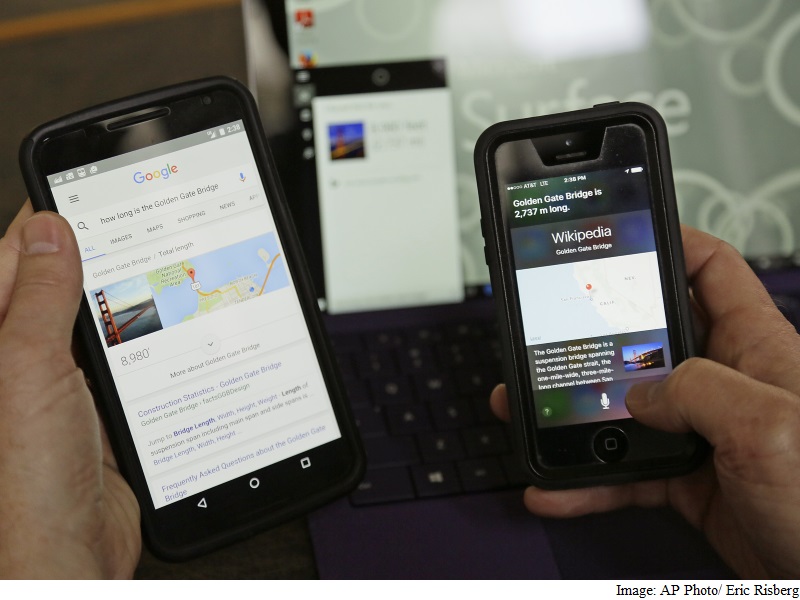
It’s 2050 and the world revolves around you.
From the contents of your fridge to room temperature – digital assistants ensure your home runs smoothly. Your screens know your taste and show channels you want to see as you enter the room. Your car is driverless and your favourite barman may just be an android.
Predictions for an AI-dominated future are increasingly common, but Antoine Blondeau has experience in reading, and arguably manipulating, the runes – he helped develop technology that evolved into predictive texting and Apple’s Siri.
“In 30 years the world will be very different,” he says, adding: “Things will be designed to meet your individual needs.”
Work, as we know it, will be redundant, he says – visual and sensory advances in robotics will see smart factories make real time decisions requiring only human oversight rather than workers, while professions such as law, journalism, accounting and retail will be streamlined with AI doing the grunt work.
Healthcare is set for a revolution, with individuals holding all the data about their general health and AI able to diagnose ailments, he explains.
Blondeau says: “If you have a doctor’s appointment, it will be perhaps for the comfort of talking things through with a human, or perhaps because regulation will dictate a human needs to dispense medicine. But you won’t necessarily need the doctor to tell you what is wrong.”
The groundwork has been done: Amazon’s Alexa and Google Home are essentially digital butlers that can respond to commands as varied as ordering pizza to managing appliances, while Samsung is working on a range of ‘smart’ fridges, capable of giving daily news briefings, ordering groceries, or messaging your family at your request.
Leading media companies are already using ‘AI journalists’ to produce simple economics and sports stories from data and templates created by their human counterparts.
Blondeau’s firm Sentient Technologies has already successfully used AI traders in the financial markets.
In partnership with US retailer Shoes.com, it created an interactive ‘smart shopper’, which uses an algorithm that picks up information from gauging not just what you like, but what you don’t, offering suggestions in the way a real retail assistant would.
In healthcare, the firm worked with America’s MIT to invent an AI nurse able to assess patterns in blood pressure data from thousands of patients to correctly identify those developing sepsis – a catastrophic immune reaction – 30 minutes before the outward onset of the condition more than 90 percent of the time in trials.
“It’s a critical window that doctors say gives them the extra time to save lives,” Blondeau says, but concedes that bringing such concepts to the masses is difficult.
“The challenge is to pass to market because of regulations but also because people have an intrinsic belief you can trust a doctor, but will they trust a machine?” he adds.
Law, he says, is the next industry ripe for change. In June, he became chairman of Hong Kong’s Dragon Law. The dynamic start-up is credited with helping overhaul the legal industry by making it more accessible and affordable.
For many the idea of mass AI-caused redundancy is terrifying, but Blondeau is pragmatic: humans simply need to rethink careers and education.
“The era where you exit the education system at 16, 21, or 24 and that is it, is broadly gone,” he explains.
“People will have to retrain and change skillsets as the technology evolves.”
Blondeau disagrees that having a world so catered to your whims and wants might lead to a myopic life, a magnified version of the current social media echo chamber, arguing that it is possible to inject ‘serendipity’ into the technology, to throw up surprises.
While computers have surpassed humans at specific tasks and games such as chess or Go, predictions of a time when they develop artificial general intelligence (AGI) enabling them to perform any intellectual task an adult can range from as early as 2030 to the end of the century.
Blondeau, who was chief executive at tech firm Dejima when it worked on CALO – one of the biggest AI projects in US history – and developed a precursor to Siri, is more circumspect.
“We will get to some kind of AGI, but its not a given that we will create something that could match our intuition,” muses Blondeau, who was also a chief operating officer at Zi Corporation, a leader in predictive text.
“AI might make a better trader, maybe a better customer operative, but will it make a better husband? That machine will need to look at a lot of cases to develop its own intuition. That will take a long time,” he says.
The prospect of AI surpassing human capabilities has divided leaders in science and technology.
Microsoft’s Bill Gates, British physicist Stephen Hawking and maverick entrepreneur Elon Musk have all sounded the alarm warning unchecked AI could lead to the destruction of mankind.
Yet Blondeau seems unflinchingly positive, pointing out nuclear technology too could have spelled armageddon.
He explains: “Like any invention it can be used for good and bad. So we have to safeguard in each industry. There will be checks along the way, we are not going to wake up one day and suddenly realise the machines are aware.”
[“Source-gadgets.ndtv”] Techosta Where Tech Starts From
Techosta Where Tech Starts From